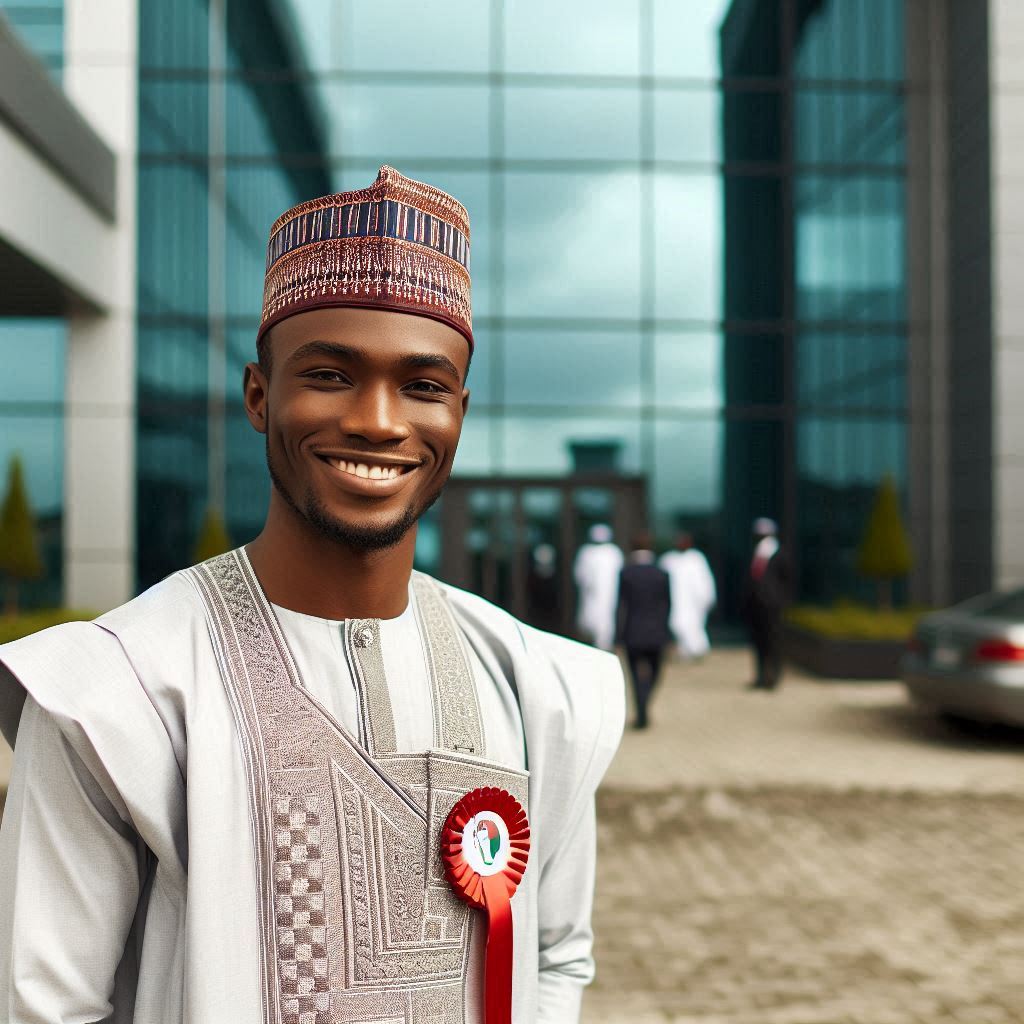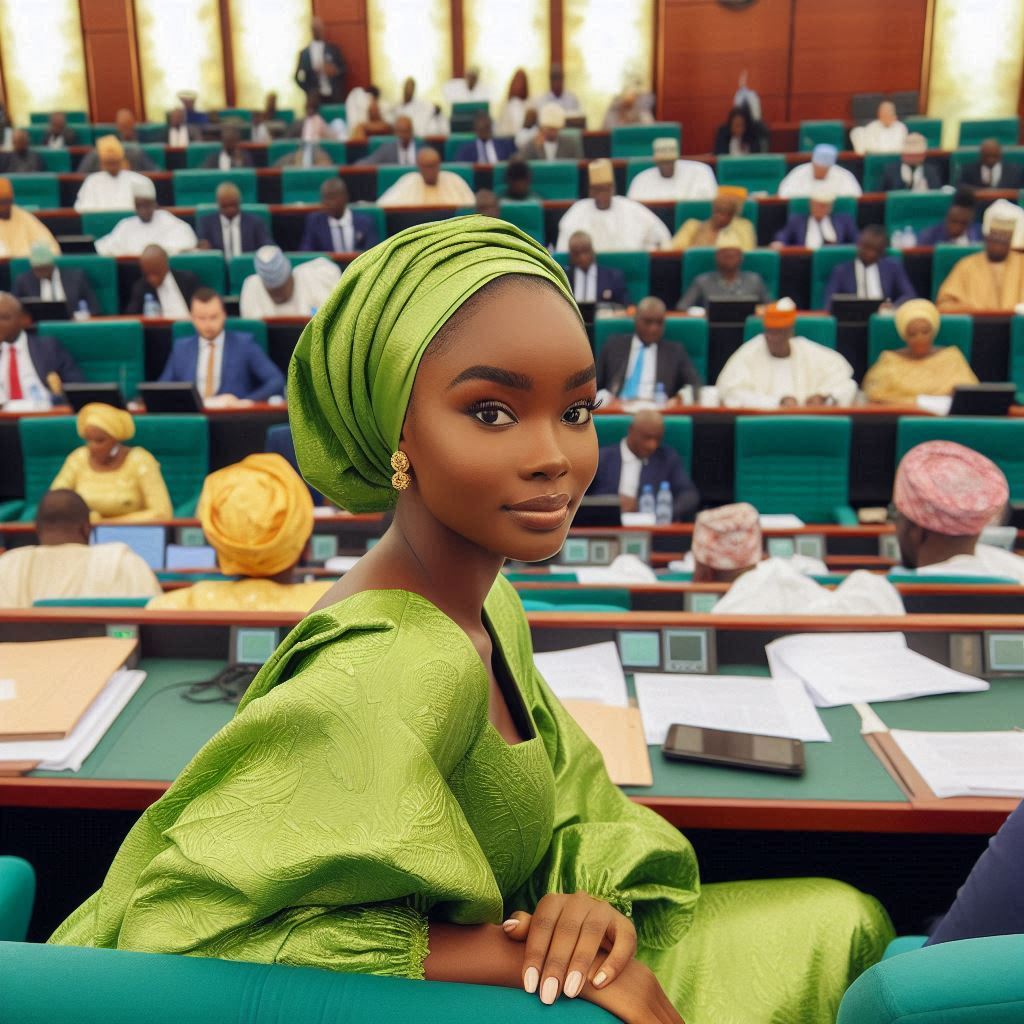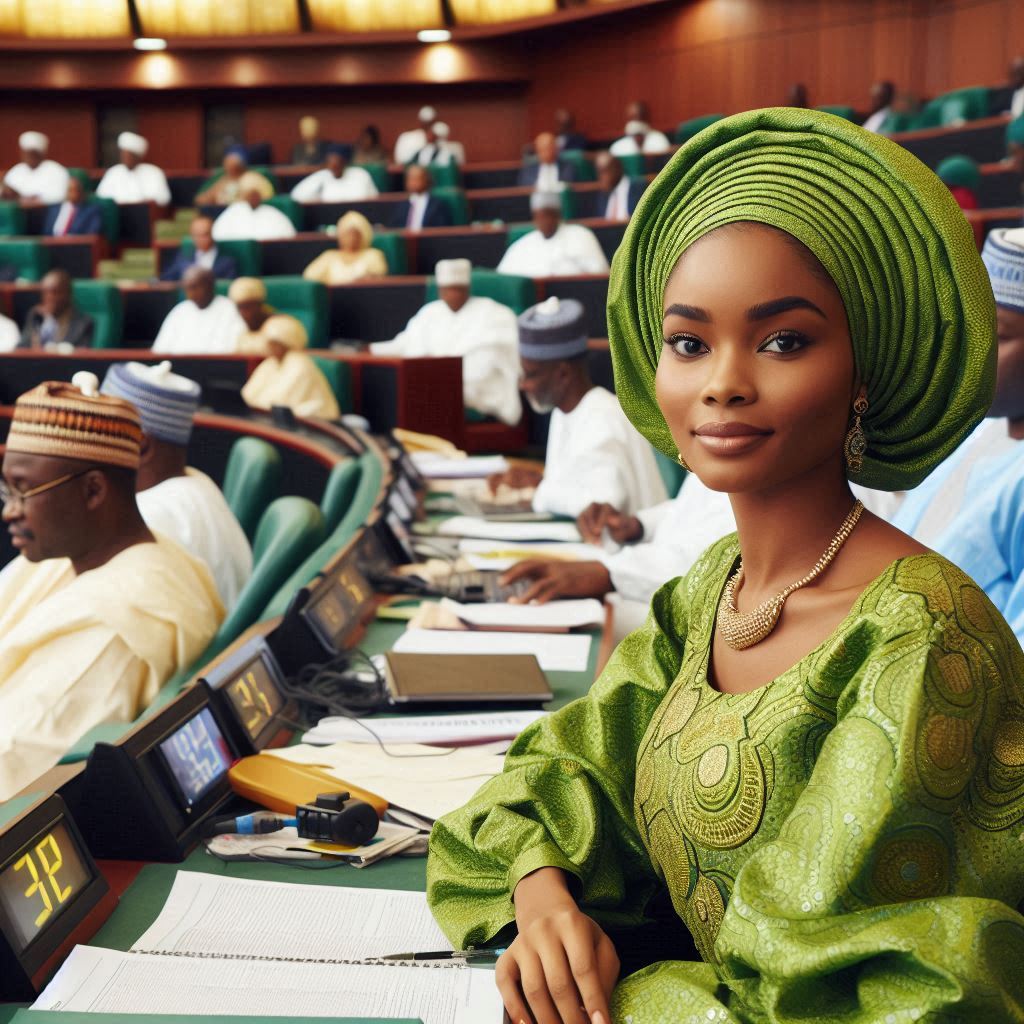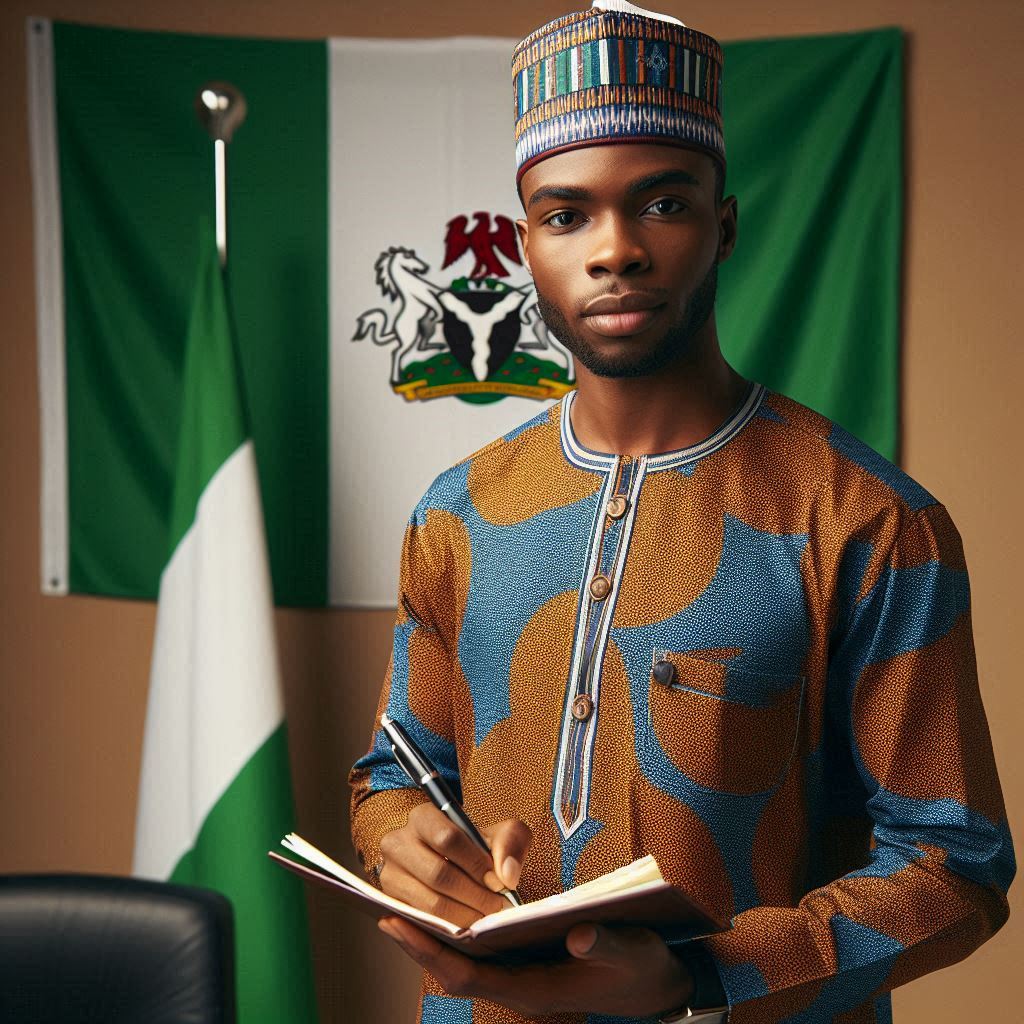Introduction
Nigerian scholars have made significant contributions to global political science, shaping debates and theories worldwide.
This blog post will explore the impact of Nigerian political thinkers on the discipline and highlight key achievements in the field.
Nigerian Political Thinkers
Notable Nigerian political thinkers like Claude Ake and Chinua Achebe have influenced global political discourse.
They have offered unique perspectives on issues like democracy, governance, and development.
Their works have transcended boundaries, enriching the field of political science with diverse perspectives.
Significance of Nigerian Scholars
Nigerian political scholars have challenged traditional Western paradigms, offering alternative frameworks and insights.
Their contributions have brought attention to overlooked issues in global politics, promoting inclusivity and diversity.
By engaging with African contexts, Nigerian scholars have enriched the discipline with new approaches and perspectives.
Roadmap for the Blog Post
In the following sections, we will delve into the works of key Nigerian political scholars and their impact on global political science.
We will explore how Nigerian political thinkers have shaped debates on democracy, governance, and development.
Additionally, we will discuss the challenges and opportunities faced by Nigerian scholars in the global arena.
Early Nigerian Political Thinkers
Early Nigerian political thinkers like Nnamdi Azikiwe and Obafemi Awolowo made significant contributions to political theory and practice. Their ideas have influenced global political science in profound ways.
The Work of Early Nigerian Political Thinkers Such as Nnamdi Azikiwe and Obafemi Awolowo
Nnamdi Azikiwe: A Pioneer in Political Thought
Nnamdi Azikiwe, often called the “father of Nigerian nationalism,” was a prominent political thinker.
He advocated for self-governance and independence from colonial rule.
Azikiwe’s work emphasized the importance of unity in achieving political goals.
He believed that a united Nigeria could effectively challenge colonial powers.
Azikiwe’s ideas extended beyond Nigeria.
He argued for Pan-Africanism, promoting solidarity among African nations.
This concept influenced political movements across Africa.
Azikiwe’s emphasis on unity and cooperation became foundational in the decolonization process.
In addition to his political activism, Azikiwe contributed to political theory.
He wrote extensively on democracy and governance.
His writings highlighted the need for inclusive and participatory political systems.
Azikiwe’s vision of democracy inspired many African leaders and scholars.
Obafemi Awolowo: Architect of Modern Nigerian Politics
Obafemi Awolowo was another influential Nigerian political thinker.
He is best known for his work on federalism and economic development.
Awolowo advocated for a federal structure in Nigeria to accommodate its diverse ethnic groups.
His ideas on federalism have been studied and implemented worldwide.
Awolowo’s economic policies were also groundbreaking.
He promoted social welfare programs and free education.
These policies aimed to reduce inequality and improve living standards.
Awolowo’s approach to governance was holistic, integrating economic and social development.
Awolowo’s writings on federalism influenced political science globally.
His ideas on managing diversity in a federal system have been adopted in various countries.
Awolowo’s work demonstrated how federalism could promote stability and unity in diverse societies.
Highlight Their Contributions to Political Theory and Practice
Nnamdi Azikiwe and Obafemi Awolowo’s contributions have had a lasting impact on political theory and practice.
Azikiwe’s advocacy for unity and Pan-Africanism influenced regional integration efforts.
His writings on democracy emphasized the need for inclusive governance.
Awolowo’s theories on federalism provided a model for managing diversity in pluralistic societies.
His economic policies highlighted the importance of social welfare and education in governance.
Both thinkers promoted political systems that fostered participation and inclusivity.
How Their Ideas Influenced Global Political Science
Azikiwe and Awolowo’s ideas have had a significant impact on global political science.
Azikiwe’s promotion of Pan-Africanism influenced the development of regional organizations like the African Union.
His emphasis on unity and cooperation continues to shape political discourse in Africa and beyond.
Awolowo’s theories on federalism have informed constitutional designs in various countries.
His approach to economic development has also influenced policy-making in developing nations.
Awolowo’s integration of social welfare into governance has been particularly impactful.
Nnamdi Azikiwe and Obafemi Awolowo made significant contributions to political theory and practice.
Their ideas on unity, federalism, and democracy have influenced global political science.
These early Nigerian political thinkers provided frameworks that continue to shape political systems worldwide.
Their legacies demonstrate the importance of inclusive and participatory governance.
By studying their work, we can gain valuable insights into effective political strategies.
Azikiwe and Awolowo’s contributions highlight the global relevance of Nigerian political thought.
Their impact on political science remains significant and enduring.
Read: Exploring Semiotics in Communication Arts
Contemporary Nigerian Political Scholars
Present-day Nigerian political scholars like Ayo Olukotun and Jibrin Ibrahim have made significant contributions to political science.
Their research and publications have impacted global political thought in profound ways.
The Work of Present-Day Nigerian Political Scholars Like Ayo Olukotun and Jibrin Ibrahim
Ayo Olukotun: A Voice in Democratic Governance
Ayo Olukotun is a prominent Nigerian political scholar known for his work on democratic governance and media studies.
He has critically examined the role of media in Nigeria’s democratic processes.
Olukotun’s research highlights how media influences political participation and public opinion.
His work emphasizes the need for a free and independent press.
Olukotun argues that media freedom is essential for a healthy democracy.
He has also explored the challenges facing media in Nigeria, including censorship and state control.
Olukotun’s publications have provided insights into the intersection of media and politics.
His studies have highlighted the importance of media as a tool for democratic accountability.
Olukotun’s work has been influential in advocating for media reforms in Nigeria.
Jibrin Ibrahim: Champion of Electoral Integrity
Jibrin Ibrahim is another influential Nigerian political scholar.
He is renowned for his research on electoral processes and governance.
Ibrahim has focused on electoral integrity and the role of civil society in promoting democracy.
His work has shed light on the challenges of conducting free and fair elections in Nigeria.
Ibrahim has highlighted issues such as electoral fraud, voter suppression, and political violence.
His research emphasizes the need for transparent and accountable electoral systems.
Ibrahim has also explored the role of civil society in strengthening democracy.
He argues that active civic engagement is crucial for democratic governance.
Ibrahim’s publications advocate for greater citizen participation in political processes.
Their Research and Publications in the Field of Political Science
Ayo Olukotun’s research on media and democracy has been widely published.
His books and articles provide comprehensive analyses of media’s role in political development. Olukotun’s work has been essential in understanding the dynamics of media freedom in emerging democracies.
Jibrin Ibrahim’s research on electoral processes has also been influential.
His publications include extensive studies on election monitoring and reform.
Ibrahim’s work provides practical recommendations for improving electoral integrity.
Both scholars have contributed significantly to the academic discourse on governance and democracy.
Their research offers valuable insights into the political landscape of Nigeria and other developing nations.
How Their Work Has Impacted Global Political Thought
Ayo Olukotun and Jibrin Ibrahim’s contributions have resonated beyond Nigeria.
Olukotun’s emphasis on media freedom has influenced global discussions on press independence.
His work has been cited in studies examining media’s role in democratic transitions worldwide.
Ibrahim’s research on electoral integrity has informed international electoral reform efforts.
His findings have been used by global organizations to enhance electoral transparency and accountability.
Ibrahim’s advocacy for civil society participation has also inspired democratic movements globally.
Present-day Nigerian political scholars like Ayo Olukotun and Jibrin Ibrahim have made significant contributions to political science.
Their research on media freedom, electoral integrity, and civil society has impacted global political thought.
By examining their work, we gain valuable insights into the challenges and opportunities in democratic governance.
Olukotun and Ibrahim’s contributions highlight the global relevance of Nigerian political scholarship.
Their impact on political science continues to be significant and enduring.
Read: Student Experiences: Life in Communication Arts
Nigerian Perspectives on Democracy
Nigerian perspectives on democracy and governance
- Nigerian perspectives on democracy and governance vary based on historical and cultural contexts.
- Nigerian politicians and scholars have played a significant role in shaping global debates on democratic practices.
- Nigeria’s diverse population and complex political landscape offer unique insights into the challenges and opportunities of democracy.
Analyzing Nigeria’s Influence
- Nigerian thinkers like Wole Soyinka and Chinua Achebe have contributed to global discussions on democracy and human rights.
- Nigerian politicians such as Nnamdi Azikiwe and Obafemi Awolowo have championed democratic principles both at home and abroad.
- Nigeria’s transition from military rule to democratic governance in 1999 has inspired other African countries to embrace democratic ideals.
Nigeria’s Role in Promoting Democracy
- Nigeria has been a key player in promoting democratic values within the African Union and other regional bodies.
- The country has participated in peacekeeping missions across Africa, supporting democratic transitions in conflict-torn nations.
- Nigeria’s diplomatic efforts have helped facilitate dialogue and reconciliation in countries facing political crises and civil unrest.
Read: Introduction to African and Asian Studies in Nigeria

Nigerian Contributions to Conflict Resolution
When it comes to conflict resolution, Nigeria has played a significant role both domestically and internationally.
From peacekeeping missions to diplomatic efforts, Nigerian contributions to global conflict resolution are noteworthy.
Nigerian Efforts in Conflict Resolution
- Nigeria has been actively involved in resolving conflicts within its borders, such as religious and ethnic clashes.
- The country has also participated in peacekeeping missions in various African countries, contributing troops and resources to help maintain peace.
- Nigerian diplomats have been instrumental in mediating conflicts on the global stage, using their expertise to facilitate negotiations between warring parties.
Role of Nigerian Diplomats and Peacekeepers
- Nigerian diplomats have served in key positions within international organizations, advocating for peaceful resolutions to conflicts around the world.
- Nigeria has contributed troops to United Nations peacekeeping missions, showcasing its commitment to maintaining stability in conflict-affected regions.
- Nigerian peacekeepers have been praised for their professionalism and dedication to upholding peace agreements in complex conflict zones.
Nigerian Experiences Informing Global Conflict Resolution Strategies
- Through its own experiences with internal conflicts, Nigeria has gained valuable insights into the complexities of managing and resolving disputes.
- These experiences have informed Nigeria’s approach to conflict resolution globally, emphasizing the importance of dialogue, negotiation, and inclusivity.
- Nigerian experts in conflict resolution have shared their knowledge and skills with international partners, contributing to the development of effective strategies for peacebuilding.
Essentially, Nigerian contributions to conflict resolution have been significant and impactful, with the country playing a vital role in promoting peace and stability both at home and abroad.
Read: Impact of Communication Arts on Nigerian Media
Gender and Politics in Nigeria
The Role of Nigerian Women in Politics and Governance
Nigerian women have made significant strides in the political landscape of the country.
They have been actively involved in various levels of governance, including holding positions in government, parliament, and local councils.
Nigerian women have played a crucial role in advocating for gender equality, women’s rights, and social justice.
They have been vocal in addressing issues such as gender-based violence, discrimination, and lack of representation in decision-making processes.
Nigerian women have also been instrumental in promoting democracy and good governance in the country.
Contributions of Nigerian Female Political Scholars to Global Gender Studies
Nigerian female political scholars have made valuable contributions to global gender studies.
They have conducted research, published scholarly articles, and participated in international conferences on topics related to gender, politics, and governance.
Nigerian female political scholars have offered insightful perspectives on the intersection of gender, power, and representation in political systems worldwide.
Their work has helped to advance the field of gender studies and has contributed to a more nuanced understanding of the challenges facing women in politics.
Intersection of Gender, Politics, and Global Political Science
The intersection of gender, politics, and global political science is a complex and dynamic area of study.
Gender dynamics play a crucial role in shaping political processes, institutions, and policies at both the domestic and international levels.
The inclusion of gender perspectives in political science research and analysis has expanded our understanding of how power operates in society and has shed light on the experiences of marginalized groups, including women.
Nigerian scholars have been at the forefront of exploring these intersections and have helped to advance the field of global political science through their research and scholarship.
Generally, Nigerian women have played a vital role in shaping the political landscape of the country and have made significant contributions to global gender studies.
Female political scholars from Nigeria have enriched the field of political science with their research and insights on gender, politics, and governance.
The intersection of gender, politics, and global political science is a rich area of study that continues to evolve and expand with the contributions of Nigerian scholars.
It is clear that Nigerian women and female political scholars have made a lasting impact on the field of political science, both within the country and on the global stage.
Nigeria’s Influence on International Relations
Nigeria, as one of the most populous countries in Africa, plays a significant role in international relations and diplomacy.
Its actions and decisions have a direct impact on global politics and shape relationships between countries.
Nigeria’s Role in International Relations and Diplomacy
Nigeria has historically been involved in peacekeeping efforts and conflict resolution in various regions, particularly in Africa.
The country has contributed troops to United Nations missions and played a key role in mediating disputes between neighboring countries.
Additionally, Nigeria has been an active participant in regional organizations such as the Economic Community of West African States (ECOWAS), where it has helped coordinate efforts to promote stability and development in the region.
Nigerian Foreign Policy and Its Impact on Global Politics
Nigeria’s foreign policy is guided by the principles of maintaining national security, promoting economic interests, and fostering cooperation with other nations.
The country has sought to maintain friendly relations with both Western and African countries, balancing its partnerships to benefit its own strategic objectives.
One of the key aspects of Nigerian foreign policy is its emphasis on non-alignment and neutrality in international conflicts.
This approach has allowed Nigeria to maintain its independence and credibility as a mediator in global disputes.
Examining Nigeria’s Relations with Other Countries and International Organizations
Nigeria has established diplomatic ties with a wide range of countries around the world, including major powers such as the United States, China, and European nations.
These relationships have been instrumental in promoting trade, investment, and cultural exchange between Nigeria and its partners.
Moreover, Nigeria is an active member of international organizations such as the United Nations, the African Union, and the Commonwealth of Nations.
The country has used its membership in these forums to advocate for issues such as human rights, sustainable development, and peacekeeping.
Therefore, Nigeria’s contributions to global political science are evident in its active participation in international relations, its well-defined foreign policy objectives, and its engagement with other countries and organizations.
As a major player in African politics, Nigeria continues to shape the dynamics of global politics and contribute to the promotion of peace and stability in the international system.
Challenges and Opportunities for Nigerian Political Science
Identifying Challenges Facing Nigerian Political Science
- Corruption remains a significant challenge in Nigerian political science.
- Political instability also hinders the progress of political research.
- Limited funding for research and political science programs.
- Lack of qualified faculty and researchers in political science.
- Limited access to global networks and resources for political research.
- Censorship and freedom of expression limitations impacting research.
Opportunities for Growth and Development in the Field
- Increasing interest in African political systems and governance.
- Opportunities for collaboration with international political science scholars.
- Growing emphasis on democracy and good governance in Nigeria.
- Enhanced technology and data analytics aiding political research.
- Developing partnerships with think tanks and research institutions.
- Strengthening ties with government agencies for policy research.
Analyzing the Potential for Nigerian Political Science to Influence Global Discourse
- Nigeria’s position as a major African political player provides a platform for global discourse.
- Contributions to debates on democratic consolidation and conflict resolution.
- Research on security challenges adds to global discussions on terrorism and insurgency.
- Nigeria’s diverse political landscape offers a unique perspective on governance models.
- Scholarly exchanges and collaborations can elevate Nigerian political science on the global stage.
- Incorporating indigenous knowledge and perspectives enriches global political science discourse.
Conclusion
Nigerian political scholars have significantly impacted global political science.
Early thinkers like Nnamdi Azikiwe and Obafemi Awolowo laid foundational theories on unity and federalism.
Their ideas on nationalism and governance have influenced political systems and decolonization efforts worldwide.
Present-day scholars Ayo Olukotun and Jibrin Ibrahim continue this legacy.
Olukotun’s work on media freedom emphasizes the essential role of a free press in democracy.
His studies have highlighted how media can shape political participation and public opinion, essential for democratic accountability.
Recognizing their contributions enhances our understanding of political science and promotes more inclusive global dialogues.
By studying the works of Nigerian political thinkers, we gain a deeper appreciation for the complexities of governance and democracy.
Their impact on political science continues to be significant and enduring.
Let us explore, study, and appreciate the depth of Nigerian political scholarship.
Encouraging further research and engagement with Nigerian political thought will help address global political challenges and promote a more just and equitable world.




